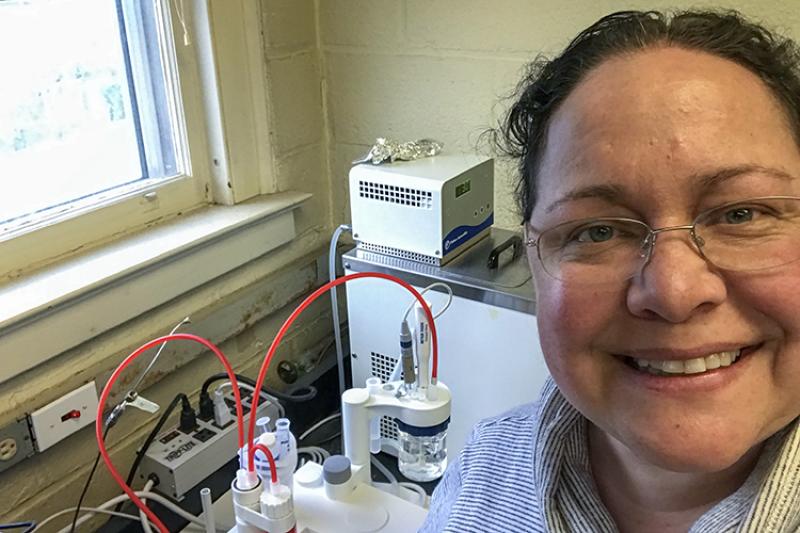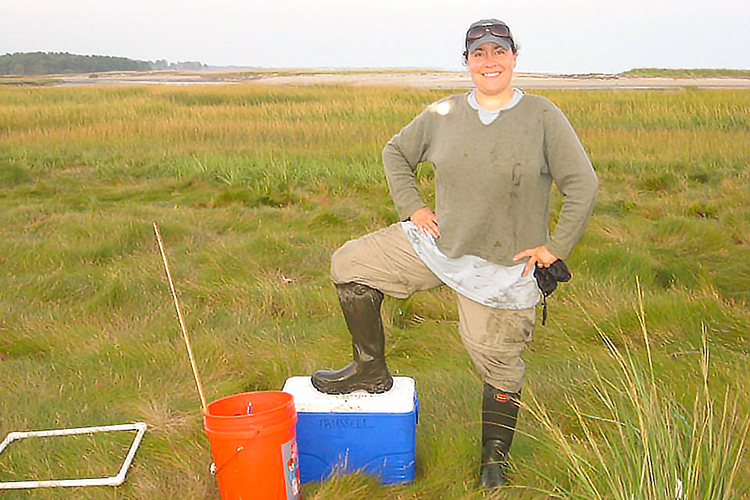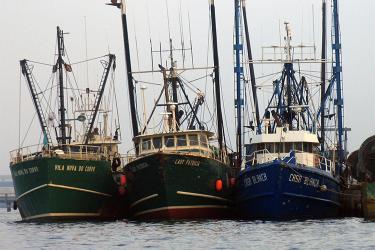Genevieve Bernatchez is a physical science technician for the Northeast Fisheries Science Center’s Aquaculture Sustainability Branch. She runs chemical and biological analyses critical to shellfish aquaculture and environmental research. Her home base is at our Milford Lab in Milford, Connecticut.
Can you tell us a little about yourself—where you grew up, how you got interested in science, where you went to college?
I was born and raised in Montreal, Canada. I’m definitely an East Coaster at heart and love the changing seasons. Growing up, I had the privilege to spend all my summers on my father’s sailboat mostly on Lake Champlain nestled between New York and Vermont. I was able to fish, swim, and enjoy all the fun activities the lake had to offer.
One summer my dad decided to do something different. We sailed on the St. Lawrence River all the way to the Atlantic Ocean. I remember the exact moment I became interested in science—it was during this trip. We were docked in a small fishing port and I noticed these interesting looking creatures attached to the dock. They were sea stars! I took a stick and started to collect them. I must have collected about 20 to 30 of them, to my dad's dismay. I laid them down on the boat deck, fascinated by the diversity of colors, sizes, and number of arms. After my observations, I put them back in the water. I was left with so many questions. I wanted to learn more about them.
Fast forward 12 years from that pivotal experience, when searching for my career path, I discovered an undergraduate program studying marine biology at the University of Quebec a Rimouski. Not only was the program offered in French—my native language—but the university is actually located on the St. Lawrence River near my sea star experience. Without any hesitation, I enrolled and never looked back! It was for me. I graduated in 2000 and I’ve been a marine biologist ever since.
I also hold a master’s degree in science, specializing in marine ecology, from Northeastern University in Boston, Massachusetts. My graduate research focused on how invasive green crab feeding directly and indirectly affected the abundance and diversity of small invertebrates in a salt marsh, and what effects that might have on ecosystem function. I enjoyed my graduate work and learned a lot, but my formative years were definitely spent at l’UQAR.
What do you love most about your job or your career?
Working on different projects and with different teams. My official title is physical science technician. Simply put, I’m the instrument maven for chemistry samples. I’m in charge of analyzing most of the water chemistry samples we have at the lab. That allows me to work on various projects. I like that my days are never the same. Currently, I’m working on a project looking at the effects of ocean acidification on multigenerational bay scallops. We’re raising bay scallops from larvae to adulthood. For this project, I’m analyzing water samples for pH, dissolved inorganic carbon, and total alkalinity to confirm the target ocean acidification exposure level. So far, we’ve raised two successful generations.
Could you share an example of a hurdle or obstacle you experienced during your science journey? How did you overcome it?
I think the biggest hurdle for me was proving that I could physically and mentally be in charge of my field project throughout graduate school. Often when I purchased hardware store materials to build cages for my field study, I was looked down on by the male clerks. They would tell me I didn’t know what I was doing. I got tired of justifying why I needed this or that. One day I finally just said, “I’m building cages to hold crabs in a salt marsh!” It quickly put an end to the snarky comments and gave me a good laugh. I always trusted myself and kept working.
What advice do you have for the next generation of women scientists about a career in fisheries and/or marine science?
GO FOR IT! You have a passion? You have a dream? Work to achieve it! Throughout the process, do not be afraid to ask for help. You are not alone in this. There will always be people around you that can help. Some people might question your abilities or try to put you down. Don’t let them. Trust your gut instinct and don’t be afraid to reach out. Generally speaking, the marine science community is small. I’m so happy to see more women joining it. We’re here to help and support each other. It’s a wonderful career!
For more information, please contact Heather Soulen.






